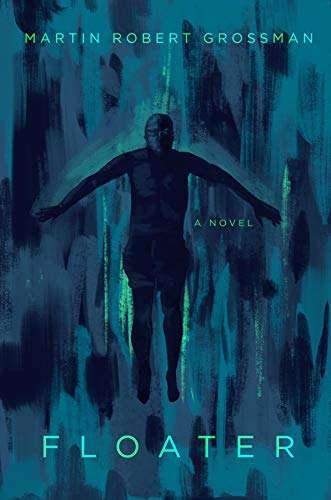Vietnam was the first war ever fought without any censorship. Without censorship, things can get terribly confused in the public mind.
General William Westmoreland
Politics aside, “war” was declared, we went, we served, and some came home to the tumult that was now America. “All Gave Some, Some Gave All,” but the America that existed in the 60’s and early 70’s didn’t give a shit, and the lucky ones didn’t have to witness the continuing demise of this once great country—they came home in body bags—and every American with a TV set got the chance to watch it up close and personal. The eyes of every mother, father, brother, and sister were glued to the one-eyed monster every evening, watching the slaughter unfold as the talking heads described the carnage in vivid detail.
The growing opposition to the Vietnam War was partly attributed to greater access to uncensored information presented by the extensive television coverage on the ground in Vietnam. They watched because they could. They watched in hopes of seeing their loved ones still alive, hoping, above hope, that their viewing wouldn’t be interrupted by an ominous knock on the door from a military officer and chaplain offering condolences to a grieving family. Fear gripped the families of American service members, just as it gripped America’s fighting men and women in the combat zone.
There was another thing that was front and center on America’s T.V. sets—the carnage on the home front. Protestors were ripping apart the fabric of the American Flag. They were called “hippies” and “war protestors,” and what they did was perfectly within their rights as Americans, but it didn’t make it right. Some self-serving protestors’ goal was to eliminate the draft, while others took the moral high ground of ending the death and destruction in a foreign country; but all the protests had one common consequence—it crushed the morale of the American soldier! They couched their protests in a shroud called “The Peace Movement,” disguising their intentions and message under a mask of harmony camouflaged as a flower child singing Kumbaya. Their intentions were obvious to those sent to fight and die—they became the festering malady that marked the times. Some, fearful of being drafted into service fled to Canada, while others joined groups of dissenters, groups intent on disrupting not only the war effort but the peace and tranquility at home.
These groups of student activists under the guise of the free speech movement were started on the liberal college campuses of the United States. Other groups who were racially fixated and enveloped in the civil rights movement, further unraveled the threads that made up the fabric of our lives and our flag.
Arising out of this chaos was another kind of protestor. The idle rich and famous played the most demoralizing role in this drama. These were the turncoats, traitors, wrapped in the burning American Flag, and espousing, “flower power,” while brave American soldiers were being killed by the thousands. They should have been brought to the bar of justice, but their wealth, celebrity and political status gave them a free pass, for, as we all know, the justice system in this country is not fair and balanced, not blindfolded, like the myriad of statues on the courthouse steps. We all know who they are, and we all know what they did. There is more severe justice that they will face. Justice dispensed by those they betrayed—REAL JUSTICE!
Brandy was a child of privilege, born and raised in the wealthy suburb of Beverly Hills California, not far from the glamour and glitter of Hollywood. Her father was a famous movie star and she was tended by her stay at home mother. A life of privilege gives you many things but one of them isn’t necessarily a moral pulse, a compass that can guide your life. There are two roads that branch off the tree of privilege, one easier than the other. The choice is simple. You can take the moral high branch or the amoral low branch, the swamp, the pit of inequities and depravity—Brandy was destined for the later.
By 1965 things were heating up again in a little-known place in Southeast Asia—Vietnam. In 1954 the Indo-China War ended when the French got their ass handed to them at a place called Dien Bien Phu, and for the free, peace loving, people of Vietnam it had been all downhill from there. America would soon become embroiled in a new conflict as the government thought it was a good idea to sacrifice American lives to prop up a dictator that was running the government of South Vietnam. Years of slowly escalating war were about to begin, only to end a decade later in so-called, “peace with honor.”
He was only eighteen years old when he enlisted in the Army and before he was twenty his boots hit the ground in Vietnam. James Cleaver was an ordinary boy that was born and grew up in Portland, Oregon. He was born into an average family, that lived in an average trailer near the outskirts of town. James was an average student and graduated from an average high school, graduating fifty-fifth in a class of sixty. The year was 1966, and newly graduated James Cleaver, jumped onto the bus that would take him from reality as he knew it, and into a time and place from which he’d never return. While the boys from California were being flown to Fort Polk, Louisiana, the boys from Oregon were being flown to Fort Ord, California; as the Beach Boys sang “California Dreaming” into their ears.
John Kershaw was born with a silver spoon in his mouth. Born to a wealthy, politically connected, Massachusetts family. He was the only son in a family that had five kids. He was the oldest and the legacy for his family rested squarely on his shoulders, and he was made to know that before he reached the age of eight. Young John would take long walks with his father out into the woods that surrounded their estate. It was there that his father would instill in him the future he expected from his son. John would graduate private school and at eighteen, volunteer for the Navy. His father was adamant that John would not attend Annapolis. An astute politician, John’s father could sense the winds of war coming over the country and knew that anyone that volunteered, and had connections, would be ripe for political life when and if they came home; and, despite the danger and uncertainty, that’s what he wanted for young, John.
Monty Dollar was an actor. He was also a draft dodging, card carrying, secret member of the communist party. Monty was a war agitator, that became close friends with Brandy Forester and worked with her on several films. At one time, it was rumored that Monty was romantically involved with Brandy, but that was a lie proliferated by the pulp fiction writers to sell newspapers and magazines at the grocery check-out line, and movie tickets at the box office.
The hippies and anti-war protesters continued with their diatribe, with help from Hollywood stars, trying to grab headlines, as the print and video media fanned the flames of discontent—a fire which couldn’t be smothered with all the blood being spilled by the “grunts” in the field; most of whom had been drafted by a nation ripe with descent.
Brandy Forester and her actor friend, Monty Dollar, extended their acting careers by joining the ranks of the sign waving, protesting, malcontents, to sell more tickets to their movies and personal appearances. One day they would know the wrath of America but not until they became rich and famous to the chagrin of every fighting man and the families who got a telegram from a “grateful nation” telling them their son was dead.
Dr. Carla Golden was a psychotherapist that treated veterans at a place known only as “the Ranch.” The Ranch was in the foothills of the Sierra Nevada mountains surrounding Carson City, Nevada. She specialized in alternative treatments for PTSD, alcoholism, drug addiction, and other ailments suffered by veterans of past wars or those returning from current combat zones and unable to properly and fully assimilate back into American post war society. Dr. Carla, as she was known to the veterans, she worked with, had moved from the Texas City VA Clinic after the trial of Capt. Don Carter. Carter invited Dr. Carla to join him and use the Ranch as her therapeutic treatment center. Dr. Carla was ready for a change of scenery and agreed to join him there. She had heard of a treatment for serious PTSD that was in the experimental stage and wanted to try it as part of her overall treatment strategy. It was called SDT, (Sensory Deprivation Therapy).





